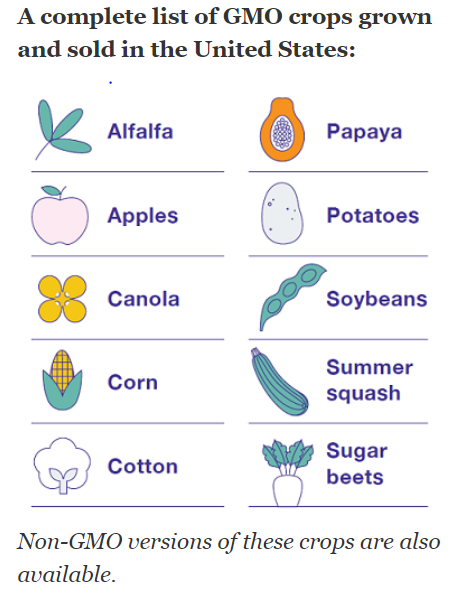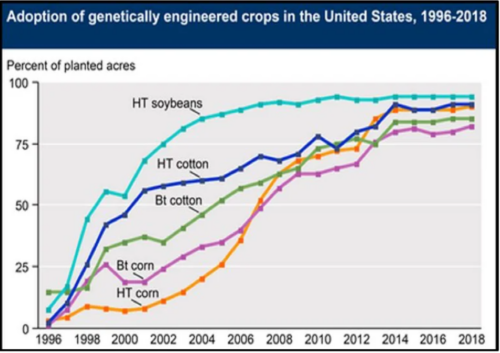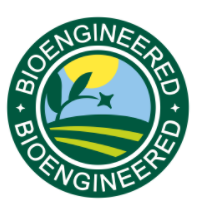Vote with your vote. Today!


Even after writing Unsavory Truth: How the Food Industry Skews the Science of What We Eat I could hardly believe this particular example.
Methods: This is a meta-analysis of meta-analyses of studies examining the health effects of alcohol consumption that are used as the basis of international guidelines for alcohol consumption.
Results and conclusions: “only a small proportion of observational studies in meta-analyses …are funded by the alcohol industry. Based on this selection of observational studies the association between moderate alcohol consumption and different health outcomes does not seem to be related to funding source.
Funding: “The authors reported no funding received for this study.”
Author disclosures: “MV, APMvS, TvW, MLJ, RMD, RJB, IdK, and AS were employed by the Dutch Beer Institute during the study and writing of the manuscript. This Institute is funded by Dutch Brewers, which is the trade organization of the 14 largest beer brewers in the Netherlands. EJMF reports no conflicts of interest.”
Comment: This one defies credulity: an industry-funded study—most authors work for the beer industry—of whether industry funding affects research outcome.
Guess what? It didn’t find any effect.
For years, the alcohol industry has been working hard to convince regulators and the public that moderate drinking, especially of wine and beer, is not only harmless but actually improves health. This study is an example of how this industry attempts to accomplish that goal.
For another egregious example, see this post.
You might think that Halloween is—or was pre-Covid—a fun activity for your kids, but it’s underlying purpose is to sell candy, as much as possible to as many people as possible. It’s a big part of total annual candy sales (Valentine’s Day is another).
Let’s start with The Counter’s account of how the candy industry convinced everyone to buy record-breaking amounts of candy, while public health authories were discouraging trick-or-treating.
Is it possible to trick-or-treat safely? Suggestions:
What’s happening with Halloween in New York City?
ConfectionaryNews.com has produced a Special Edition: Fright night: How American candy companies are gearing up for Halloween
No doubt, Halloween is going to feel different this year, but as John Downs, president and CEO of the NCA [National Confectioners Association] says: “it is definitely happening!”
In this special edition newsletter we focus on how the confectionery industry in the USA is preparing for one of its main holiday seasons. Halloween is estimated to generate over $4bn in revenue for candy companies and while the festivities are going ahead, the emphasis is on staying safe and following guidelines.
To help consumers and its members prepare for this year’s event the NCA has launched its Halloween Central portal with up-to-date advice from top health experts on how to celebrate safely. With online sales of candy soaring, we look at an innovative solution from Mars Wrigley with the launch of its virtual Treat Town app for those who are unable to join the outdoor fun this year. We also report on how other big companies, including Hershey and Ferrero, intend to lift spirits this Halloween – and new kid on the block Stuffed Puffs completes our round-up with a spooky twist on a camp-fire classic.
Check-out the articles below to find out more – and have fun but stay safe this Halloween.
Foods marketed to kids are an enormously profitable enterprise, but most foods marketed to kids are ultraprocessed junk foods. Companies are scrambling to come up with profitable food items for kids that might actually be good for them. Hence: “healthy” kids food.
By the way, kids don’t need special foods designed for them; they are perfectly capable of eating anything that adults eat, cut or smashed to size and in smaller portions, of course.
This collection of articles is from FoodNavigator.com, an industry newsletter that I find highly informative.
Special Edition: Healthy kids food
From fussy eaters, to early years nutrition, allergies and healthy snacks for kids, we take a look at the latest developments in children’s food and profile innovation for the next generation.
And while we are on the subject of “healthy” kids foods, what about what General Mills is doing?
General Mills is bringing back its classic recipes for four of its cereals: Cocoa Puffs, Golden Grahams, Cookie Crisp and Trix, according to a release. This reformulation back to retro ’80s recipes is permanent and is now available at retailers nationwide.
Just what kids do not need. Sigh.
The FDA has a new Agricultural Biotechnology Education and Outreach Initiative to teach the public about GMOs.
Its “Feed Your Mind” Initiative provides webpages, fact sheets, infographics, and videos developed jointly with the USDA and EPA.
What is this about?
in 2017, Congress provided funding for an Agricultural Biotechnology Education and Outreach Initiative, which calls upon FDA to work with EPA and USDA to share science-based educational information about GMOs, beginning with answers to some basic GMO questions.
Some of this is useful. For example:

If you want details about any of FDA-authorized GMOs, you have to go to this obscure website on “completed consultations.”
Most GMOs are crops grown for animal feed (or ethanol for cars).

So the only GMO products you are likely to find at supermarkets are papayas, potatoes, squash, and apples.
How can you tell? If the papayas are from Hawai’i, you can assume they are GMO.
As for the others, you have no way of knowing unless they are labeled, and good luck with that.
GMOs are supposed to be labeled starting in 2020 and definitely by 2022 (unless overturned by litigation). The label is supposed to look like this:
 The FDA website says nothing about GMO labeling. It also says nothing about GMO monoculture, corporate control of the food supply, pesticide resistance, or pesticide harm.
The FDA website says nothing about GMO labeling. It also says nothing about GMO monoculture, corporate control of the food supply, pesticide resistance, or pesticide harm.
But it does have all this:
Evidence is pouring in that people with adequate vitamin D status seem to be better protected against harmful effects of Covid-19.
This is not surprising; people who practice healthful lifestyles—eating well, being active, getting out in the fresh air, maintaining a healthy weight, not smoking, not drinking too much—generally survive this infection more easily.
Vitamin D, I must remind you, is not really a vitamin. It is a hormone induced by the effects of sunlight on skin.
Sunlight is by far the most effective way to get it. Foods provide much less.
As for supplements, it’s hard to say. They are under investigation.
I’ve been collecting items:
As always with supplements, a market is involved. This one is not trivial, even in the UK.
An obesity newsletter I subscribe to—Obesity and Energetics Offerings—provides items suggesting that conflicts of interest may be involved.
My bottom line at the moment: the science is still unfolding. What to do while waiting for further research? I like these Considerations for Obesity, Vitamin D, and Physical Activity Amid the COVID-19 Pandemic:
Until further breakthroughs emerge, we should remember that modifiable lifestyle factors such as diet and physical activity should not be marginalized. Decades of empirical evidence have supported both as key factors promoting health and wellness. In times of crisis, whether it be real or perceived, there is something to be said about the benefits of empowering people to actively preserve their own health.
Get outside, move around, expose some skin to sunlight. Even in winter.
The potato industry has a problem. Some nutrition experts do not recommend them and argue that potatoes—especially French fries—raise blood sugar levels and should be excluded from recommendations to increase vegetable intake (I love potatoes in any form but try not to overeat them—everything in moderation if you can manage that, and I can).
In any case, the The Alliance for Potato Research & Education (APRE) is devoted to protecting the reputation—and sales–of potatoes, and funds research for that purpose.
The study: Daily intake of non-fried potato does not affect markers of glycaemia and is associated with better diet quality compared with refined grains: a randomised,crossover study in healthy adults. EA Johnston et al. British Journal of Nutrition (2020), 123, 1032–1042.
Results: “Compared with refined grains, the HEI-2015 Healthy Eating Index] scores..were higher following the potato condition. Consuming non-fried potatoes resulted in higher diet quality, K [potassium] and fibre intake, without adversely affecting cardiometabolic risk.”
Financial Support: The Alliance for Potato Research and Education provided funds for the research conducted. Their staff were not involved in any aspects of conducting the study, analyzing the data or interpreting the results presented.
Comment: The APRE says it remains firmly committed to the scientific integrity of industry-funded research” Its guidelines for research integrity sound good, but don’t address the inherent problems of industry-funded research: the well established “funding effect” that virtually guarantees that industry-funded research will produce results that favor the sponsor’s interests, and the also well established observation that investigator bias tends to occur at an unconscious level. The exclusion of fried potatoes from this particular study suggests that the investigators know that frequent eating of French fries is a marker of poor diet quality. I think potatoes have a place in healthy diets and that much depends on their particular role and preparation. As with much in nutrition, the potato situation is complicated, and industry funding does not help with clarification.
Michael F. Jacobson. Salt Wars: The Battle Over the Biggest Killer in the American Diet. MIT Press, 2020.

Michael Jacobson was one of the founders of the Center for Science in the Public Interest, which he directed for more than 40 years.
His book comes with an introduction by Tom Frieden, former head of New York City’s Health Department and Director of the CDC.
I wrote a blurb for it:
Public health authorities advise eating less salt as a way to prevent high blood pressure, but a few scientists disagree. For anyone confused by these arguments, Salt Wars is a must read. Michael Jacobson has been fighting these wars for decades, and his assessment of the research on both sides—and the policy implications–is exceptionally fair, balanced, and fascinating.
Here are a few excerpts: